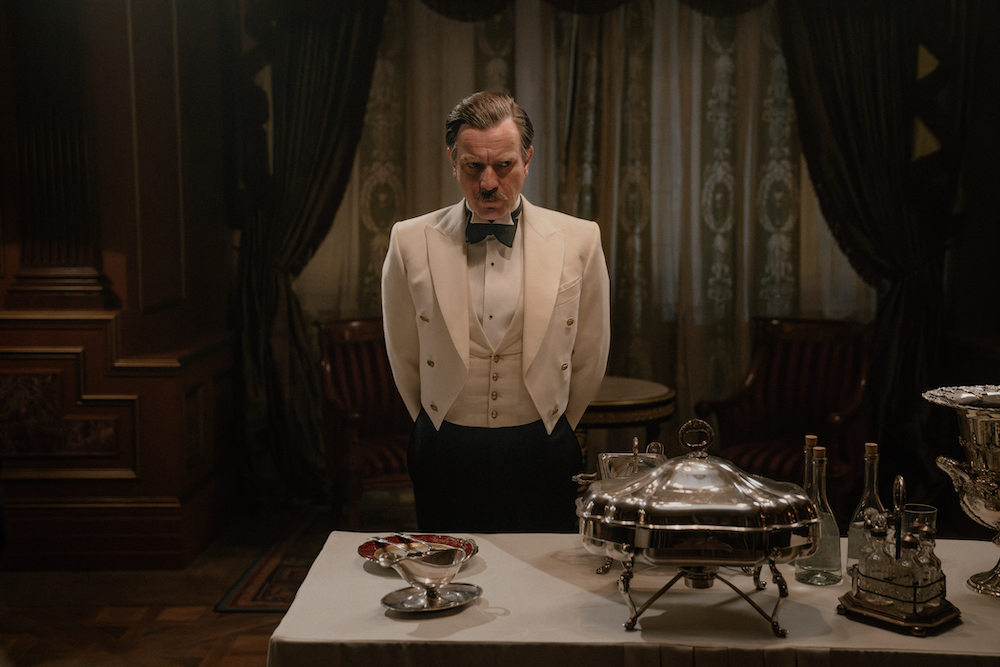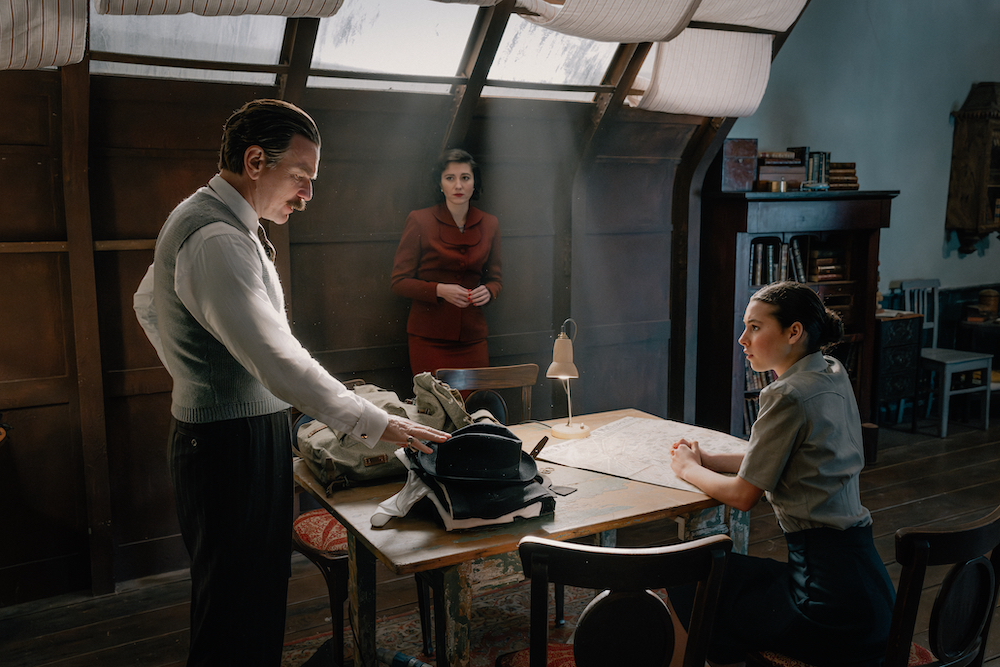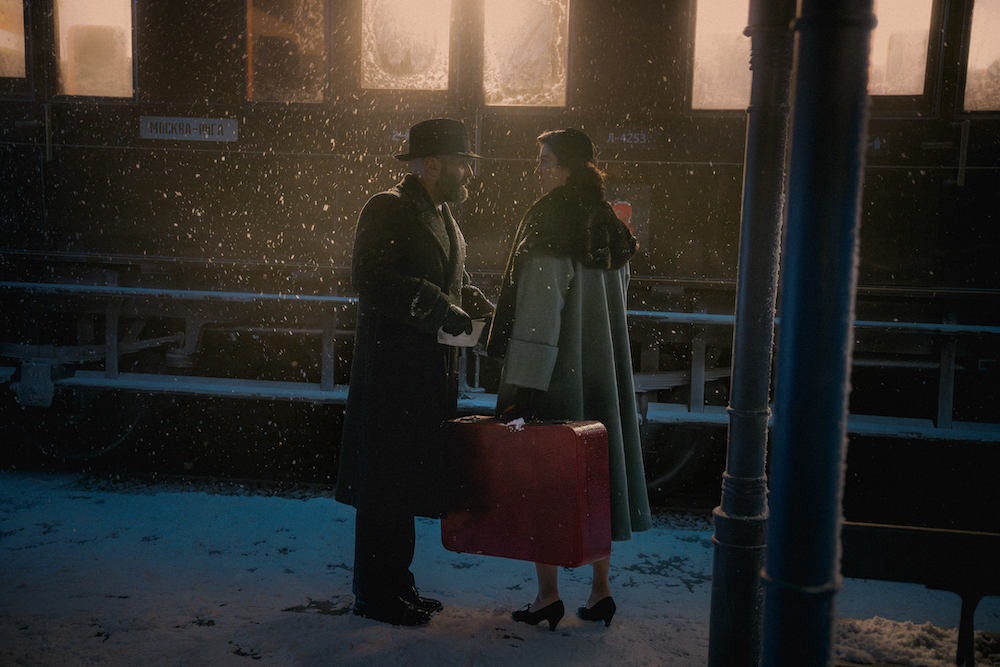After spending decades at the Metropol, barely stepping out of place since being placed under permanent house arrest, Count Alexander Ilyich Rostov finally decides to break free of his torment for good. The final episode of Showtime’s ‘A Gentleman in Moscow’ focuses on him creating an elaborate plan that would allow him, but more importantly, his loved ones, the freedom to live the life they want and deserve. But like everything else, the Count knows things don’t fall so easily into anyone’s lap, especially with the people currently in charge of the country. It is an uncertain world, but luckily, Rostov gets his happy ending, though a bit differently than he’d imagined it.
What Happens to Count Rostov and Anna Urbanova?

You can take a man out of Russia, but you can’t take Russia out of the man: this is probably the best way to describe the protagonist of ‘A Gentleman in Moscow.’ At the beginning of the story, we discover that Rostov had fled to Paris and had spent a few years there for a while. As much as he enjoyed his stay, he didn’t want to turn it into a permanent thing. Eventually, he returned home, and that too, at a time when everyone else was leaving it. He jokes that the weather brought him back to Russia, but it was actually his love for his homeland that drew him back.
In the end, after seeing all the ups and downs in his country and realizing that his daughter, Sofia, has no future stuck in the Metropol and forced to live the life she doesn’t want, Rostov decides that it’s time to take the risk he hadn’t taken in decades. It is time to step out of the Metropol and leave Russia for good. With Sofia going to Paris for the concert, it becomes a bit easier to have her out of harm’s way. But her escape also puts a ticking clock on him. As soon as the news of her escape comes to light, the authorities would come looking for him, and they wouldn’t just harm him but everyone who has ever had any kind of connection with Sofia.

It becomes imperative for the Count to leave, and Anna Urbanova agrees to accompany him because, by that time, she has also become a part of the family. It is decided that once it is confirmed that Sofia has escaped and is well, he and Anna will leave the country. They plan to use the passports stolen from hotel guests and use that to make their way to Holland, where they will eventually find a way to America, where Sofia will be waiting for them. However, Osip reminds the Count that he is being watched, and so is Anna.
While it may have been years since the Bolsheviks rose to power and tore apart the aristocracy, it doesn’t mean that the current regime has turned its attention away from them. Rostov is one of the few aristocrats of that time who are left alive, and no matter how mundane their lives might have become and how insignificant they might seem, they are still treated as persons of interest. Osip also points out that if he could figure out what Rostov, Sofia, and Anna were up to, then someone else would also have done so, which means that any attempt of escape on his part would become his final act, and it would also mean the end of Anna. Considering Osip’s words, the Count sends word to Anna, waiting at the train station for him, that he will not be joining her. However, this doesn’t mean he won’t be leaving.
In the end, when the Count finally escapes the Metropol, he knows he can never really leave Russia. It just wouldn’t let him go. So, instead of finding a way to some other country, knowing that Sofia is safe, he goes back home, the very place that had drawn him back from Paris, the place where he grew up and had the happiest memories of his life, the home that was burned down during the revolution, and of which only parts remain.

An interesting thing that happens in this part is that the palette changes to the times it was used to represent Rostov’s memories. Anything that happened in real-time was in a normal frame, but any memories of Rostov were shown differently, something that felt more nostalgic. The same happens with the ending where we watch Rostov and Anna reunite at his family estate of Idlehour, and where they live together the rest of their lives within the black apple orchards of the place. This shows that the ending is more of a thought from the narrator.
From the beginning, the story is told to the audience through an unseen narrator, who is later revealed to be Sofia. All the parts of the story that she was privy to and the things that she knew happened for sure are presented in the normal frame. It is because she doesn’t know what really happened to the Count and Anna that we see the final scene in the nostalgia frame, proving that this is a wish on Sofia’s part, something she thinks about so often that it has made a home in her head as a memory. Does this mean that the ending didn’t really happen that way? While the show may have had the narrator, Amor Towles’ book of the same name (on which the show is based) didn’t. In it, Rostov does go back to his home in Idlehour, where he meets someone, whose name is not revealed, but the hints throughout the book confirm is Anna. The show delivers the same ending, just presenting it through a different lens. This confirms that the events at the end of the show actually did happen and isn’t just the imagination on Sofia’s part. Rostov finally has his freedom, and he and Anna do get the happy ending they so rightfully deserve.
Read More: A Gentleman in Moscow: How Did Rostov’s Sister Helena Die?


You must be logged in to post a comment.